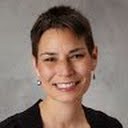I started working in healthcare 40 years ago; it was 1976, the year of the Bicentennial celebration of the adoption of the Declaration of Independence. In October of 1982, I received my nursing license from the State of Michigan. Many years have passed, many things have changed.
One of the first things to come to mind is the advances in technology. The devices in the hospitals that have computers now has increased dramatically including infusion pumps, robots for surgery, and scanning equipment to receive supplies, are a few of the examples. Prosthetic limbs and drugs with biomarkers are other fine examples of the advancement of technology.
New discoveries have been made with drugs; although the cost of some of the new therapies is astronomical. Accessibility to drugs has improved, although drug shortages have impacted facilities for several years now. Older drugs are going to a single supplier and the cost of those goods are increasing.
The electronic health record (EHR) is here to stay. The information we used to write down on paper is now input digitally. The health record is more accessible and transparent for data retrieval. However, there is no doubt that the electronic health record systems have increased the documentation time of health care professions. For nurses, seventy-five percent of each hour is spent documenting in the electronic health record.
There have also been changes in physician practices. The cost of malpractice insurance and the changes in reimbursement has driven some doctors into retirement, hospital-based medical groups and boutique medicine. Tightening regulations have altered the physician workflows and impacted their efficiency. Many physicians have been adapting to the changes. It is not necessarily bad, just different.
Nursing has changed as well. Currently, there are four generations of nurses practicing in America; Baby Boomers, Gen X, Gen Y, and Gen Z. There are interesting differences between these generations of nurses. Entry level education can be an Associates, Bachelors or Masters prepared nurse.
As our world evolves, regulations have become more prominent and numerous. Healthcare Reform has changed the type of patient that is hospitalized and the acuity that is seen.
But the patients still come. The American Nurses Association reported in December 2015 that nurses are rated the most honest, ethical profession for fourteen straight years; essentially, nursing consistently is the most-trusted profession in the United States. Nurses are at the bedside when a person is at their most vulnerable state; ill, control limited, choices limited, afraid, alone, and there is the nurse, the educator, the advocate, the care giver, the medication manager, the trusted one to keep a loved one safe. Wow, that is a lot of responsibility.
Forty years ago, I was blessed by being led into healthcare. Over the years, I have met and worked with nurses of many generations, many levels of education, multiple ethnicities, males and females, many specialties, and hospitals sized 65 beds to over 900. There are so many roles for nurses at the bedside but also in other areas; educators, school nurses, office nurses, community nurses, administrators, informatics specialists, regulatory compliance facilitators, etc.
Two commonalities I have seen and been proud to be associated within the nursing profession are the connection to the patient and the art of caring. Every nurse I have spoken to can connect their work to delivering care to patients. The nurse at the bedside is obvious; the nurse designing the electronic health record is not as obvious but just as important to care delivery. Nurse Administrators who hold us to policies and procedures, juggle the budgets, approve overtime, and challenge us to be our best, keep their eyes focused on the patient. The nurse surveyors who make most nurses want to run and hide are there to insure regulations are being followed for patient safety and quality patient care.
I have met so many amazing nurses throughout my career and I have learned so much from them that I believe I am a better nurse due to these encounters. I am grateful to the nurses and other healthcare providers that I have had the opportunity to work alongside. It is humbling to contemplate that nursing is considered the most trusted profession by the American people.
Thank you, nurses. Thank you for caring. Thank you for sharing yourselves with patients, their families, and your co-workers. Thank you for allowing America to trust you for so many years and for honoring that trust. Thank you for being professionals. Thank you for being nurses.

Diane Koyasu Heine, DNP, RN, CEN
MCN Healthcare Content Writer
MCN Healthcare MCN Learning MCN Foundation
